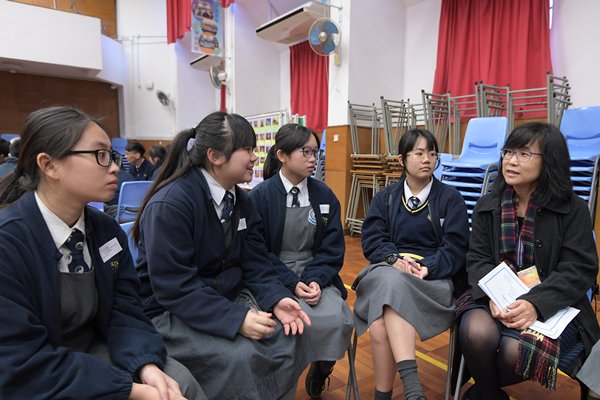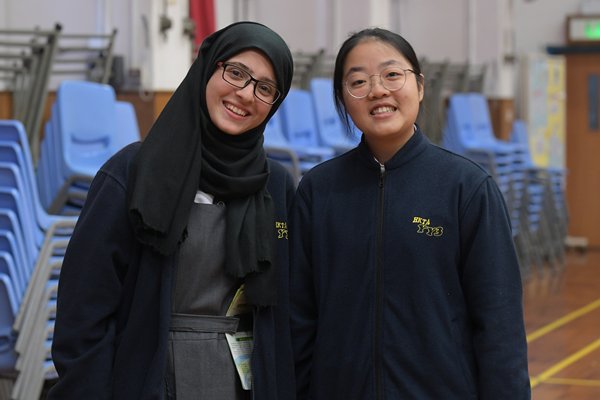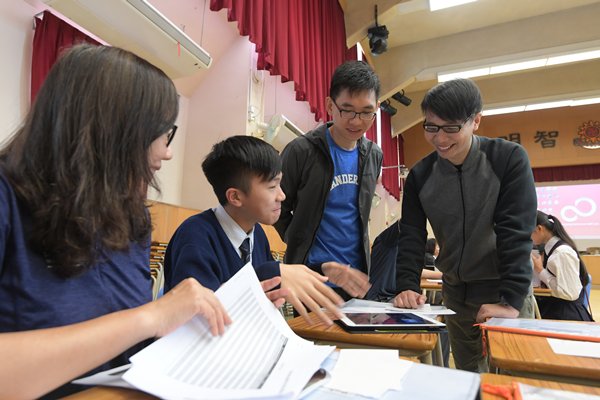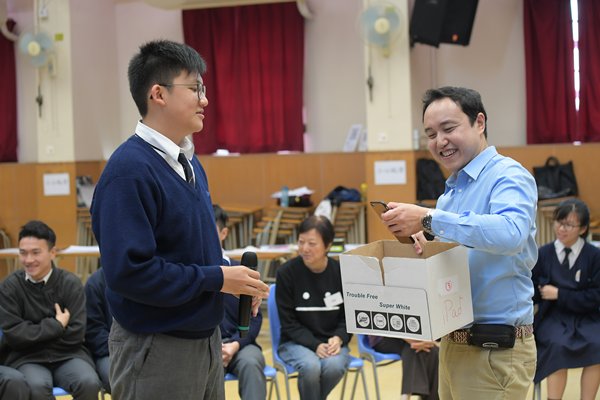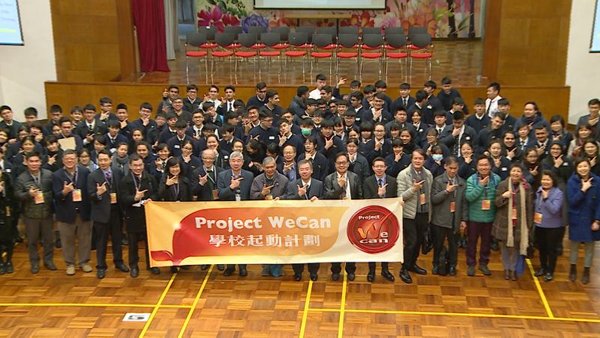Back to school for seniors
A group of volunteers from the Retired Civil Servants Association are going back to school to nurture youth development through the Project WeCan initiative.
Some of them guide students by helping them develop career paths and life plans while others help the youngsters boost their English skills.
In one of the initiative's programmes, retired civil servants talk about careers with Form 6 students at the Hong Kong Taoist Association Yuen Yuen Institute No.3 Secondary School in Tseung Kwan O.
They have served in various posts, including in the Independent Commission Against Corruption, the Correctional Services Department and the Department of Health.
Volunteer Christina Leung, 61, who worked in the Centre for Health Protection's Public Health Laboratory Services Branch, believes the talks provide useful career information for students and encourages them to consider applying for government jobs.
"They know that I used to work for the Department of Health and they prepared a lot of questions to learn about medical laboratory tests and are very eager to know more about what I did."
Student empowerment
Form 6 student Asif Kainaat hopes the school can organise similar talks in the future and said she received useful career planning tips by participating in the programme.
"We might think that we would like to go into some of the departments like the Correctional Services Department or the Immigration Department, but sometimes we really don't know what they are actually doing inside.
“By having these kinds of talks, we can actually get to know more information (about) them, so we can actually be clear about what they do.”
Project WeCan was launched in 2011 to empower students to pursue higher studies and careers. People of all backgrounds, including retirees, can apply to be instructors.
Another of the initiatives' projects is the English With Lineage: Intergenerational-ESL Programme, which enhances students' skills in the language and promotes understanding across generations.
It has benefitted 180 students from six schools so far.
Retirees trained in language teaching and communications by the Polytechnic University's Institute of Active Ageing volunteer as its tutors.
Former Immigration Department official Rosa Chiu, 67, goes to Buddhist Mau Fung Memorial College in Tin Shui Wai every Saturday to help students with their English.
She said she enjoys spending time with young people.
"I am about the same age as my students' grandmothers and I was quite worried there would be a generation gap between us. However, I was happy I could interact with them."
The college's English Department Co-ordinator Li Wing-lun said the initiative lends teachers a helping hand.
"I think this activity is very good because there is only one tutor to two students so the teacher to student ratio is low and they can take care of students' needs.
"It's a good opportunity for us to join this programme because they can have a lot of manpower and they can allocate a lot of older adults in this programme."
Bridging the age gap
Director of Project WeCan's ESL programme Alan Lai said recruiting retirees to provide English lessons can release the manpower potential of older citizens and bridge the generation gap.
"Local retired citizens, they feel like they lack opportunities to stay active, to stay connected to society. We tried to come up with a way to let them get involved in something meaningful, like contributing to the younger generation through this programme.
"After they retire, they are technically more available and that's why we tap into these local resources that most people would tend to undermine or tend to ignore."
Mr Lai added the programme benefits both retirees, who can make friends with young people, and students, who will gain confidence in using English.
Project WeCan works with more than 40 groups, including corporations, universities and consulates. It benefits 50,000 students from more than 50 schools.
